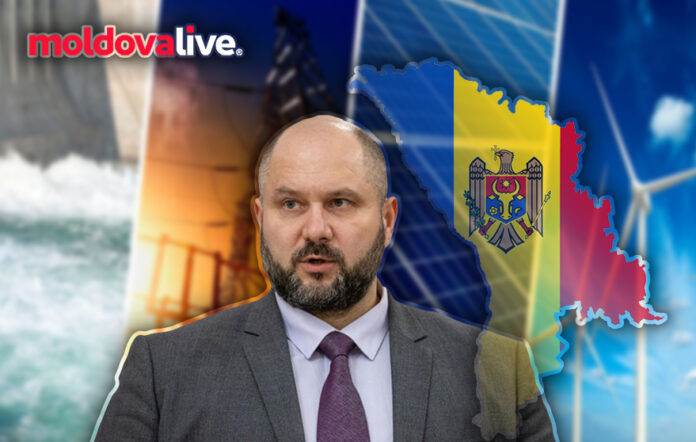In an exclusive interview for MoldovaLive, Energy Minister Victor Parlicov said that the cost of gas is not so critical for Moldova, as 64% of the population heats their homes with wood. In addition, the minister specified that the share of green energy in the total electricity flow has reached 10% in the last two years.
“Gas is a direct heat source for about 15% of the population, the other 18% depends on central heating, which also uses gas for heating. The rest, over 64% of the country’s population is heated by stoves and firewood, i.e. not dependent on gas. In other words, the importance of this fossil fuel has been exaggerated in recent years. I believe in an energy-efficient Moldova, with green energy and low greenhouse gas emissions. And we are moving very quickly in this direction because we have not only an ambitious plan but also funding, and clarity in the models – and we have already achieved many things that previous governments did not dare to do,” Parlicov stressed.
FOR THE MOST IMPORTANT NEWS, FOLLOW US ON TWITTER!
According to the energy minister, Moldova has three support mechanisms for renewable energy.
“We have three support mechanisms for renewable energy in Moldova: net metering (which has replaced net metering) for prosumers or own consumption; fixed tariff for eligible producers up to 1 MW; and fixed price allocated through auctions, guaranteed for 15 years, for large generators. In addition, there are subsidies from the state granted to economic agents through the Entrepreneurship Development Organisation and the Agency for Intervention and Payments in Agriculture.
The energy crisis and rising prices for energy resources have boosted investment in renewable energy in recent years. Of course, the following have also played an important role in policies promoted by the government, which has allocated additional allowances, updated legislation and secondary legislation, and tidied up the market.
Thus, without introducing new incentives, the installed capacity of power plants
doubled in 2023, and by the end of the year, it was last year around 343 MW. Of these, 115 MW were installed by prosumers, both households and small businesses. About 106 MW were installed on the free market, without falling under any of the support mechanisms mentioned, and this demonstrates that the market is attractive for investment and has prospects.
I will mention only that in the Republic of Moldova we have a high growth rate of
installed new capacities: 120 MW at the end of 2021, 172 MW in 2022, and now
343 MW at the end of 2023,” Victor Parlicov said.


